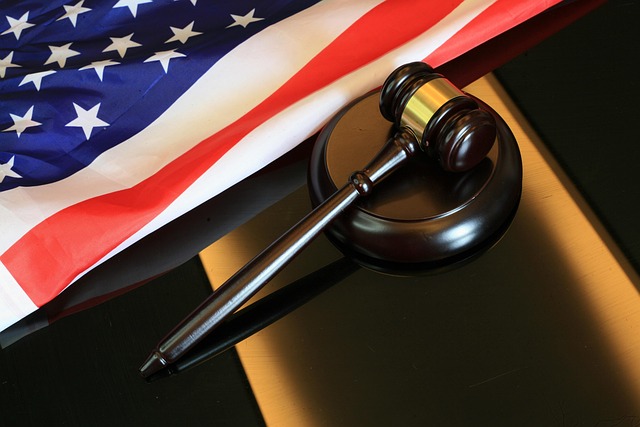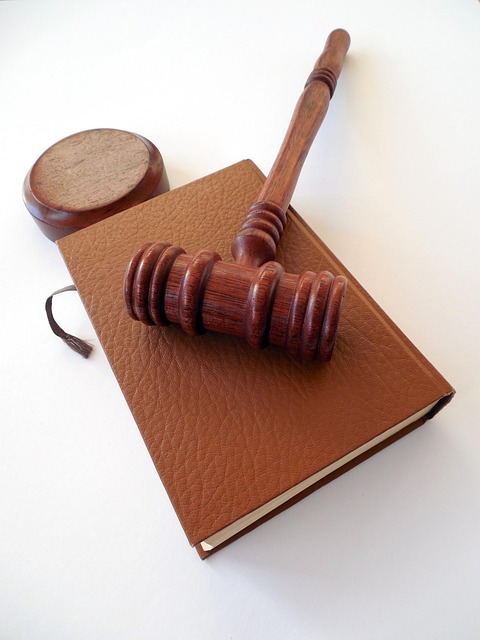Knowing your legal rights in criminal justice defense is crucial for informed decision-making and ensuring fair treatment. Legal counsel plays a pivotal role in protecting client rights, navigating complex laws, and guiding them through pre-trial hearings to sentencing. The pre-trial phase offers opportunities for strategic defenses, including negotiating plea deals and filing motions. Effective evidence presentation and analysis are key to shaping the outcome. Self-representation can hinder cases due to legal complexities and missing evidence. After a verdict, the appeals process allows higher courts to review for legal errors, impacting freedom and future strategies.
“In the intricate landscape of criminal justice defense, understanding your rights and navigating complex legal processes can seem like a daunting task. This comprehensive guide aims to illuminate crucial aspects of criminal defense strategies. From comprehending your rights and the role of legal counsel to pre-trial planning, evidence management, and common trial mistakes, we provide essential insights. Additionally, we explore post-trial options and appeals, ensuring you’re equipped with knowledge to forge a successful path through the criminal justice system.”
- Understanding Your Rights in Criminal Defense
- The Role of Legal Counsel in Court Proceedings
- Pre-Trial Strategies for Effective Defense
- Navigating Evidence Collection and Presentation
- Common Mistakes to Avoid During Trial
- Post-Trial Options and Appeals Process
Understanding Your Rights in Criminal Defense

Knowing your rights is a fundamental aspect of navigating the complex landscape of criminal justice defense. When faced with a criminal charge, individuals often feel overwhelmed and uncertain about what lies ahead. Educating oneself about basic legal rights ensures that every step taken during the defense process is informed and strategic. Understanding these rights empowers individuals to actively participate in their own defense and make crucial decisions with confidence.
One of the most critical rights is the right to remain silent, ensuring that accused persons are not compelled to incriminate themselves. Additionally, the right to legal counsel is paramount, as it provides access to a trained professional who can guide through the system. Knowing these rights enables individuals to communicate effectively with authorities and make informed choices, ultimately fostering a more just and equitable criminal justice process.
The Role of Legal Counsel in Court Proceedings

In any criminal justice defense, legal counsel plays a pivotal role in court proceedings. Their primary responsibility is to ensure that their client’s rights are protected and that they receive a fair trial. This includes thorough research on applicable laws, crafting compelling arguments, and presenting evidence effectively. Skilled legal counsel also guides their client through each stage of the process, from pre-trial hearings to sentencing, offering strategic advice tailored to the unique circumstances of the case.
During court appearances, lawyers act as advocates, arguing in favor of their client’s interests. They cross-examine witnesses, challenge inadmissible evidence, and present mitigating factors that could influence the judge or jury’s decision. Furthermore, legal counsel ensures that all procedural rules are followed, helping to prevent any potential mistakes that could compromise the case. Their expertise is invaluable in navigating the complex landscape of criminal defense, ultimately aiming to achieve the best possible outcome for their client.
Pre-Trial Strategies for Effective Defense

The pre-trial phase is a critical period in any criminal justice defense, offering a strategic opportunity for lawyers to shape the course of the case. During this time, legal professionals can gather essential evidence, conduct thorough investigations, and develop robust defenses tailored to each client’s unique circumstances. One key strategy involves meticulous fact-finding, where attorneys sift through police reports, witness statements, and any available physical evidence to identify weaknesses in the prosecution’s case.
Additionally, effective pre-trial strategies may include negotiating with prosecutors for favorable plea deals or motions to suppress evidence obtained improperly. Skilled defense lawyers also focus on building a strong relationship with their clients, encouraging open communication to understand their version of events fully. This collaborative approach ensures that all potential defenses are explored and presented compellingly, ultimately aiming to secure the best possible outcome before the trial begins.
Navigating Evidence Collection and Presentation

Navigating evidence collection and presentation is a critical aspect of any criminal justice defense strategy. The process begins with a thorough examination of all available evidence, including physical, digital, and witness testimonies. Defense attorneys must meticulously review this information to identify strengths, weaknesses, and potential inconsistencies that could benefit their client’s case.
Effective presentation involves organizing and interpreting the evidence in a compelling manner for the court. This includes utilizing expert witnesses, forensic analysis, and strategic questioning techniques to challenge the prosecution’s narrative. A well-presented defense can significantly influence the outcome of a criminal case, ensuring fairness and protecting the rights of the accused within the legal system.
Common Mistakes to Avoid During Trial

Many individuals facing criminal charges often make mistakes that can hinder their case, especially during trial. One common error is attempting to represent oneself without legal counsel. While some basic knowledge of court procedures is beneficial, complex legal arguments and strategic decisions require expertise. Self-representation may lead to overlooking crucial evidence, improper examination of witnesses, or misapplication of laws, potentially damaging the defendant’s chances.
Another mistake to avoid is failing to gather and present all relevant evidence. Effective criminal justice defense relies on a comprehensive understanding of the facts. Defendants should ensure their attorneys have access to all necessary documentation, witness statements, and any exculpatory evidence. Last-minute surprises or key pieces of information left out can disrupt the defense strategy and catch both the attorney and client off guard.
Post-Trial Options and Appeals Process

After a trial, the judge or jury will issue a verdict, either finding the defendant guilty or not guilty. If found guilty, there are several post-trial options available to both the defense and prosecution, including sentencing, probation, or community service. The appeals process is also an integral part of the criminal justice defense system, allowing for a review of the trial’s outcome by a higher court if either party believes legal errors occurred.
This appeals process involves submitting a notice of appeal within a specified timeframe to initiate the review. Legal teams will then prepare and file briefs outlining their arguments, followed by oral arguments before the appellate court. The court will subsequently issue a decision, potentially reversing the original verdict or affirming it, which can have significant implications for both the defendant’s freedom and future legal strategies in related cases.






